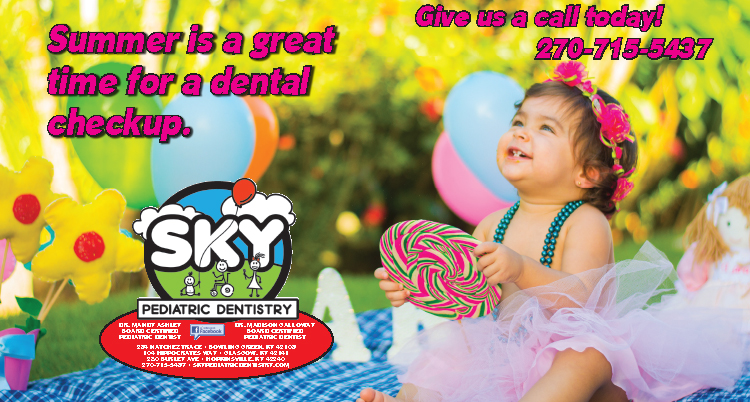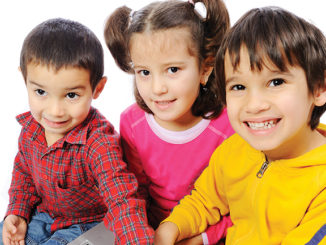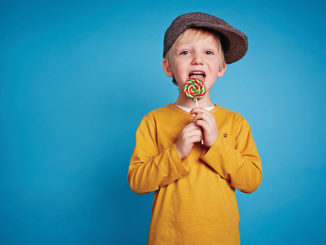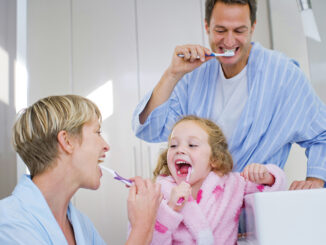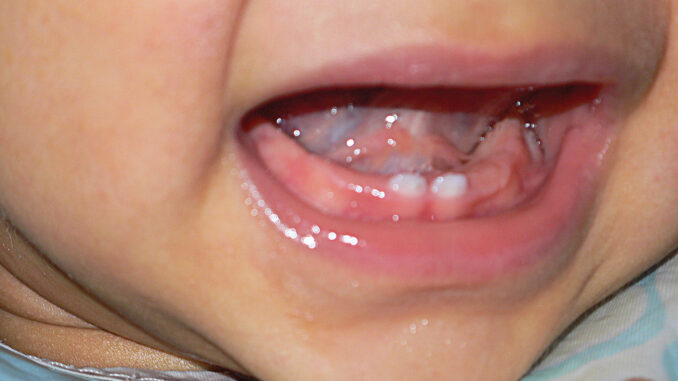
When will my baby get teeth?
Every child is different and there is a very wide range of “normal” when it comes to teeth eruptions. Below is a general guideline for what to expect. Please keep in mind that some children may get their first tooth as early as three or four months, while others may be well past one year before their first tooth erupts. Both these variations are completely normal and OK.
| Tooth | AVERAGE AGE of ERUPTION |
| Lower Central Incisors (2) | 6 mos. |
| Lower Lateral Incisors (2) | 7 mos. |
| Upper Central Incisors (2) | 7.5 mos. |
| Upper Lateral Incisors (2) | 9 mos. |
| Lower First Molars (2) | 12 mos. |
| Upper First Molars (2) | 14 mos. |
| Lower Canines (2) | 16 mos. |
| Upper Canines (2) | 18 mos. |
| Lower Second Molars (2) | 20 mos. |
| Upper Second Molars (2) | 24 mos. |
AAPD Handbook of Pediatric Dentistry
Total Number of Baby Teeth = 20
Typical Age Range = 4 mos.- 3 years old
Help! My child is teething, what can I do?
It can be very difficult to know what is going on with young children when they are uncomfortable and unable to tell you what they are feeling. The first thing to do is identify whether or not your child is actually teething or is experiencing something else.
Teething symptoms include daytime discomfort, increased chewing on toys or fingers, slight increase in drooling, and sometimes mild appetite changes.
Things that are often confused with teething but are NOT teething symptoms are:
fever >100.4
frequent sleep disturbances
croup/bronchitis
runny nose
diarrhea
convulsions
Young children often experience many things simultaneously. Any of the above symptoms can happen in conjunction with teething but should be evaluated by their pediatrician as well.
Once you know that your child is in fact experiencing some teething symptoms, there are some things you can do to alleviate discomfort…
-Chilled teethers
-“Teether-pops” (for children that have started baby foods)
-Occasional children’s Motrin (if > 6 mos. old) or children’s Tylenol. This should not be used more than one or two days at a time.
-Regular tooth brushing to keep the area clean
*Orajel or products containing “benzocaine” should NOT be used in young children due to the risk of a rare condition called methemoglobinemia*
My child has a mouth that is full of teeth! Now what?
The most important thing to do when teeth come in is to start brushing! Establishing good habits from the beginning is critical to a lifetime of healthy teeth for your child. It is OK to use toothpaste with fluoride for small children but no more than a smear or grain-of-rice-sized amount until your child is able to spit. Even before the teeth come in, wiping the gums with a clean washcloth or finger brush is a great idea to limit bacteria in the mouth.
The second most important thing to pay close attention to is diet. Especially once teeth come in, it is critical that no sugar is sitting on them while your child is asleep. Sneaky sources of sugar are milk and juice. Going to bed with milk or juice often results in a condition referred to as “Baby Bottle Cavities.” Cavities are very difficult to fix in very young children and general anesthesia is typically the solution, which is why prevention is key!
Lastly, once your child has teeth or around their first birthday, it’s time to visit your pediatric dentist!
-by Dr. Madison Galloway
About the Authors: Dr. Mandy Ashley, Dr. Madison Galloway and Dr. Tyler McCubbins are Board Certified Pediatric Dentists proud to serve the communities of Bowling Green, Hopkinsville and Glasgow! We look forward to sharing our vision of excellent comprehensive dental care that is fun for children and people with special healthcare needs with your family. SKY Pediatric Dentistry has been providing dental care to children and adults with special needs since 2013. As board-certified specialists in dentistry for children, our team strives to make going to the dentist as fun as possible while maintaining high-quality treatment and preventative measures. We tailor treatment plans to each child and offer a wide range of treatment options, including sedation, in-office general anesthesia and also hospital-based dentistry. With over 25 YEARS of doctor experience, SKY Pediatric Dentistry is a great choice for children’s dental care in Bowling Green, Hopkinsville and Glasgow!

